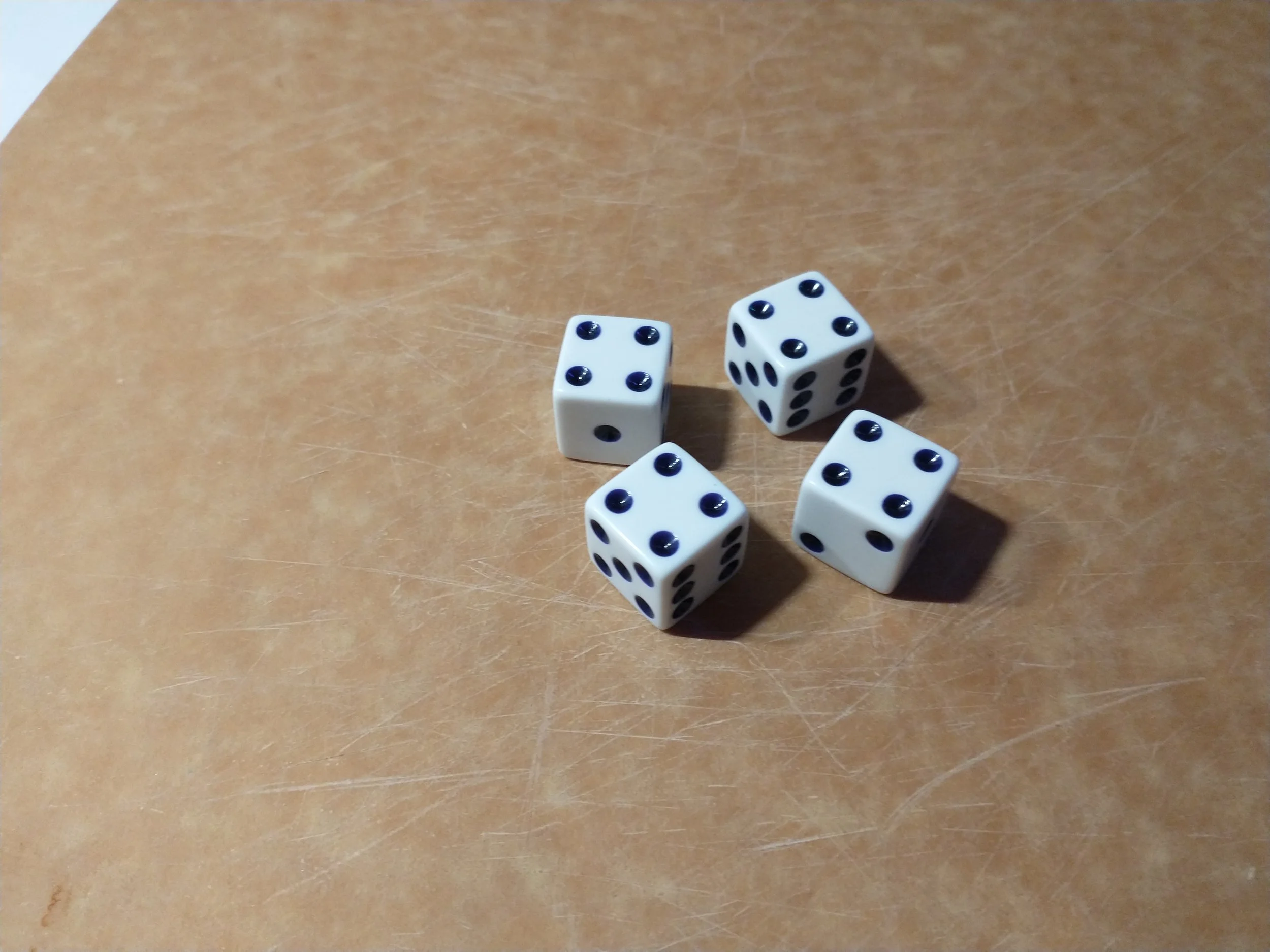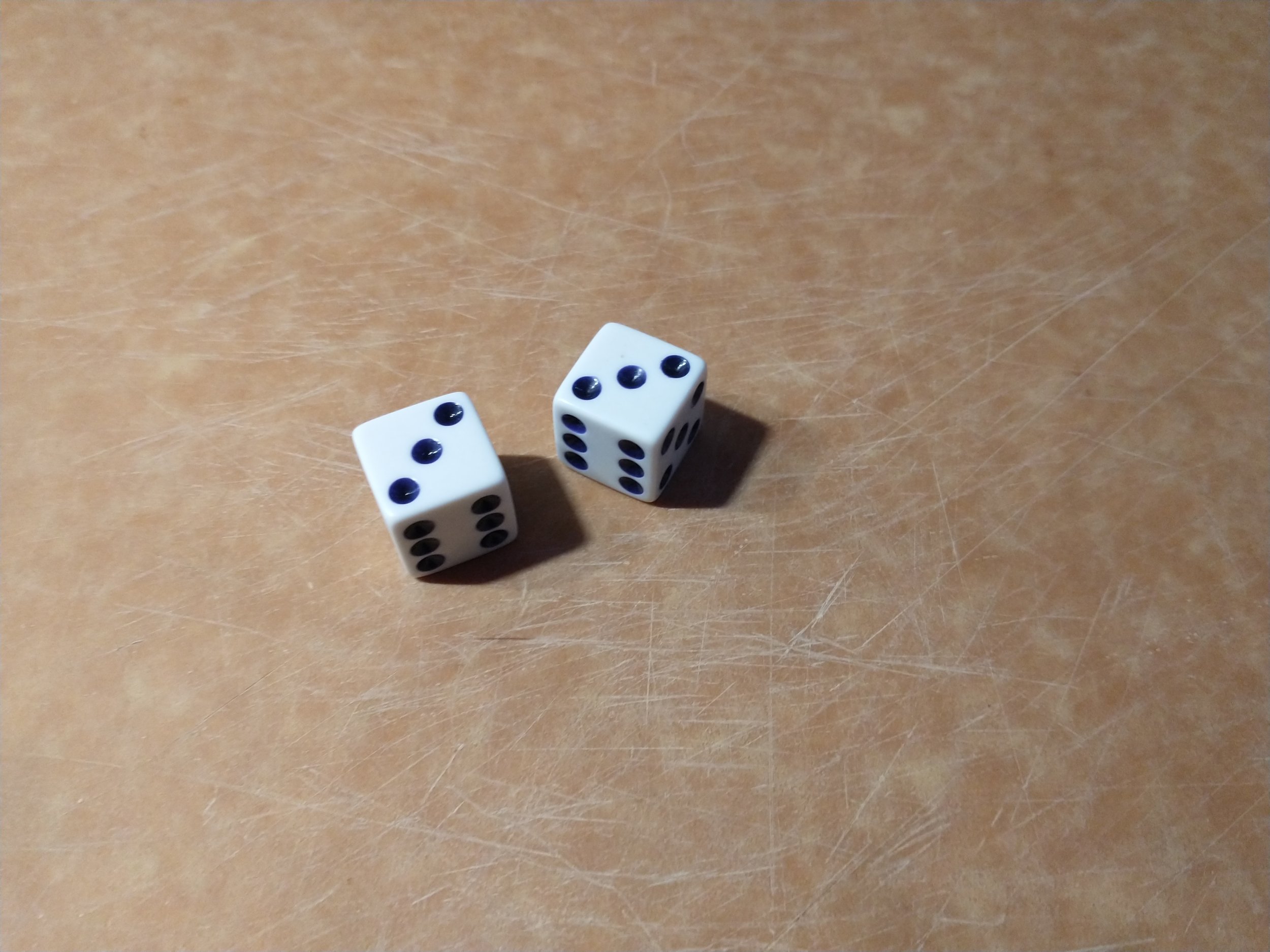Yahtzee strategy
Once when I was 18 (eight years before the male brain is fully developed) I made a $200,000 decision to study statistics, in old buildings, in a faraway state. The contract lasted four years with a fifth year option if I wanted to dish out more money, but I opted against it because I value both money and time. Surprisingly 15% of my peers did not, which is odd, because the university claimed they screened for good decision makers. Pushing the school aside, you’d think the government would intervene in situations where kids could make life-altering purchases that they can’t afford, but not only do they encourage it, they sometimes finance it. (I have a lot more dumb thoughts on this, enough to fill an entire post, but I’ll delegate that to my future self.) Luckily for me though, I received a nice discount for being a nerd in high school. Shout out to the North Carolina tax payers for subsidizing the cost; I can reassure them that their investment is being put to good use in Washington.
At the end of the four years, the administrators of the old buildings gave me the option to pay an additional $75 for a large piece of paper, proving that I’d been there. In essence, I purchased a $200,075 alibi that between the ages of 18 and 22, I was making good decisions. If the paper wasn’t enough proof, I also snagged a snazzy job for the time served. Granted, my employer based the hiring decisions, in large part, based on the paper, so you could say it’s redundant support. Perhaps the best evidence for the college experience being worthwhile is the invaluable knowledge I gained.
Of the 20-some statistics courses I took in college, I perhaps use the knowledge from just one in my day-to-day work life - a class on excel with a statistics focus. Granted I probably could have learned this knowledge on Youtube for free, but I doubt it would have been taught by a professor as knowledgeable and as well compensated as the ones at UNC. Apart from the everyday knowledge I use, I occasionally apply concepts from some of my more advanced classes, which I naively doubt could be learned anywhere else than a costly university. For example, just the other day, I used linear algebra to prove it would have been impossible to back-out my target statistics using my shortcut method. Every so often I’m able to prove, using my advanced statistical knowledge, that my advanced statistical knowledge is ineffective.
I’m using this long, satirical introduction to communicate that I’m mildly bitter about not being able to use more statistical applications in my work life, or bitter about the disconnect between what my school thought I should know for the workforce versus what I actually needed to know. BUT, if I’m good at anything, it’s the ability to go out of my way to enjoy my passions. Statistics are cool, and I’ll gladly trade my leisure time to try out a few; my girlfriend Maddie can attest to losing me for an evening after I fell deep into an excel spreadsheet.
Most recently, I’ve been calculating the odds for different Yahtzee rolls. During my first busy season at work, while waiting for one of our company tools to run, which took about five minutes to run, but had to be run repetitively, I’d play Yahtzee against myself. Busy season lasts about three months, so I played 96 individual games. Needless to say, I became adept at the game’s strategy and different roll probabilities. However, in a tragic cleaning of events, I lost my notes. Since then I’ve recalculated the odds twice, but sadly, I keep losing them (which might make sense because I usually write them on a papkin or equivalent scrap paper, like an electricity bill). This is the first time that I’m writing them down in a spot that I’ll remember; I doubt I’ll ever lose access to the internet and I’m pretty good at regularly paying my SquareSpace bill.
Caveats: The following notes are more a keepsake for myself, so I don’t keep losing them. I intend to update this post in the future if I investigate further roll possibilities. The odds haven’t been peer reviewed, so statistically, even if they are all calculated extremely accurately, it’s probable that at least one of them is wrong. All odds are based on the assumption that the dice are weighted fairly. Strategy is based on the assumption that you already know how to play the game; this isn't a how-to post.
***
Yahtzee strategy:
(The core of my strategy is based on pillars 1 and 2)
Get the 35 point bonus by having at least three of each number in the upper section.
Never try for the 1 or 2 category as you might need these as scratch inputs.
To make up for the deficit in these categories, you’ll need to secure four in the 4, 5, or 6 category.
If you ever have four 4’s, 5’s, or 6’s use it in the upper section, not four of a kind. You may end up with a very low four of a kind score, but it is much more important to get the 35 point bonus. This is the trenches of the game. Yahtzee is won here.
Get large straight, and 40 points, by trying at least three times.
Only try if you’re a good portion of the way there.
You’ll fail a few times, so have these as backups:
Crossing out the 1’s category.
Chance - I strongly recommend saving change for when you try for a large straight. Never intentionally go for chance; this should be a backup filler spot.
Small straight (on one of your attempts for a large straight, if you fail, you should have a small straight already).
Make good decisions based on probability; see odds below.
Accept the fact that, with only thirteen categories, there will be lots of variability. A good strategy will still lose to someone who gets Yahtzee twice in the same game.
However, if you played your mom 100 times, I’d sign my name to the promise that you’d win more often than not. I’m nearing my ASA credentials (actuarial certification), so that assertion is almost meaningful.
Full house is easier to get than you think, generally wait on this category, but not too long.
There’s nothing special about getting a full house. No need to pat yourself on the back for clearing an easy bar.
Optimize your odds by mastering roll mechanics. While not technically cheating, this piece of strategy is shady, so feel free to ignore if you have a high standard of morals.
If you pick up the discarded dice from the top, then shake (even for a long period of time), and finally, flip your wrist rather than tossing the dice, it’s more probable that you won’t arrive at the original number that you started with. So, instead of targeting a number with a ⅙ chance you’ll be working with odds closer to ⅕ .
For example if you discarded a 5, using the technique above, you’d be more likely to roll a 2 on the next toss because it’s opposite 5. Since you discarded the 5 originally, it leaves a higher probability of getting a number you actually need.
Don’t hate the player, hate the game.
Starting hand: four of the same
Yahtzee: 30.56%
Starting hand: three of the same
Yahtzee: 9.33%
At least one more: 51.77%
Starting hand: two of the same
At least two more: 22.30%
At least one more: 66.51%
Full house: 25.93%
Starting hand: one of the same
At least two more: 35.81%
Staring hand: crap
At least three more: 32.56%
Starting hand: almost full house
Full house: 55.56%
Starting hand: almost large straight
Large straight: 30.56%
Large straight (with a small straight backup focus): 12.81% (51.77%)
Starting hand: almost large straight
Small straight: 51.77%
Large straight (with no backup focus): 24.54%







